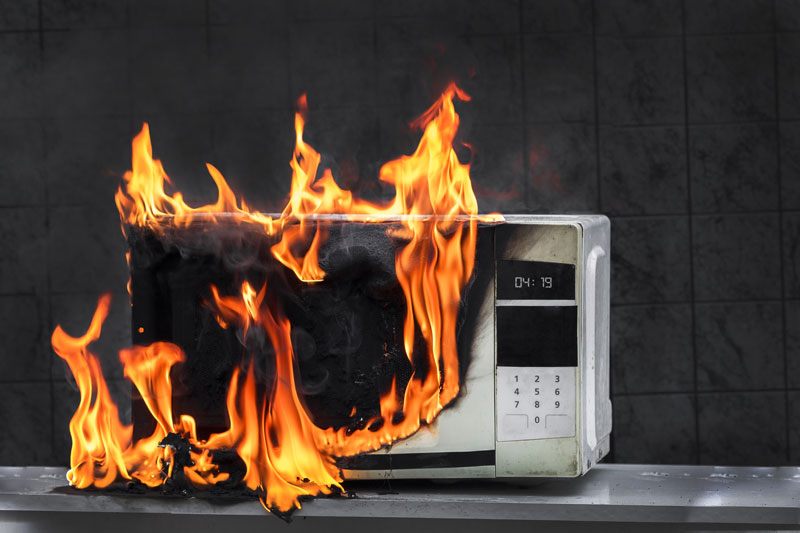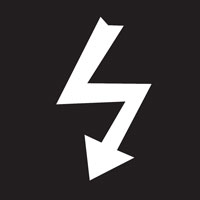-
Contact
Sales & Customer Service
0800 612 6537 support@safelincs.co.uk Live ChatDelivery Enquiries
0800 077 6149 - Resources
Fire & Safety Solutions
CALL OUR TEAM NOW 0800 612 6537
Lines open today 8:30am - 5pm
Free Delivery
on 100s of Products
Secure Payments
with our fast checkout
Live Customer Chat
Available Now
30 Day Accounts
for Public Sector
5 Star Customer Feedback
The Use of Water-Based Extinguishers on Live Electrical Equipment
Traditional wisdom has it that water and electricity do not mix. Whilst this is true in some circumstances, the classic one being the use of an electric hair dryer whilst in the bath, it does not apply to water-based extinguishers and their use on live electricity as long as the extinguishers have undergone a test called the di-electric test.

Can Water-Based Extinguishers be Used on Live Electrical Equipment?
Any water-based extinguisher that has passed a di-electrical test is suitable for use on live electricity up to 1000V at a distance of at least 1m. BS EN 3-7 is the internationally recognised product standard that states exactly this. Any extinguisher that displays the below symbol has passed the standard di-electric test and is suitable for use on fires involving electrical equipment.

Fire Extinguishers displaying this symbol (left) have been di-electrically tested and are suitable for use on live electrical equipment
To verify the safety of extinguishers on live electrical equipment, the di-electric test uses a very high voltage of 35,000 volts at a distance of 1m from the user and measures the flow of electricity back to the extinguisher. As an added precaution, the extinguishers that pass the test are then limited to use on 1000V of live electricity.
Safelincs have commissioned reports by two leading industry experts on the subject of the use of water-based extinguishers on live electrical equipment. The expert opinions contained within the reports confirmed that water mist fire extinguishers and any other water-based portable fire extinguishers that have been di-electrically tested are safe for use on mains fed electrical equipment of up to 1000 volt from a distance of 1m or more.
Key points to note from the reports:
- Any portable fire extinguisher including water mist that has passed a di-electric test with 35,000 volts is suitable for use on live electrical equipment up to 1000 volts at a 1m safety distance.
- In addition, the use of de-ionised water makes water mist fire extinguishers particularly safe, as de-ionised water cannot conduct electricity.
Report Evidence From Stewart Kidd
Stewart Kidd worked in fire safety in the UK and overseas since 1974 and his career has included training fire fighters, providing certificate and Diploma courses for the Fire Protection Association (FPA), British Institute of Facilities Management and the Institution of Fire Engineers. He has also been responsible for the implementation of fire safety programmes in large facilities. His report highlights that water mist and any other water-based portable extinguisher that has been di-electrically tested is suitable for use on live electrical equipment up to 1000V AC at a safety distance of 1m.
Expert Advisory in respect of the use of portable fire extinguishers in areas where there may be live electrical apparatus by Stewart Kidd
“In my opinion and based on the research I have undertaken there is no real-world evidence of (the discharge of a di-electrically tested water-based extinguisher used at a safety distance of 1m on live electrical equipment up to 1000v AC) creating a material risk to persons using the extinguisher. (1: Page 7)"
"Based on my experience and the research I have undertaken I believe … that there is no evidence of any persons coming to harm in the circumstances described. (1.1: Page 7)”
Report Evidence From Michael Jones
Michael Jones is Managing Director of Michael Jones Chartered Forensic Fire Electrical Ltd. He is a forensic scientist with specialisms in fire investigation and electrical matters, a Chartered Engineer and a Chartered Forensic Practitioner. Michael is also a member of many professional organisations and has over 30 years of experience in the field. Michael’s report states that any extinguisher that passes the di-electrical test (including the water mist) is safe for use on low-voltage (less than 1000V AC) mains fed electrical equipment.
Expert Advisory Report by Michael Jones
“My view is that any extinguisher that passes the test in Annex C of BS EN 3-7 is safe for use on low-voltage (less than 1000 V AC) mains fed electrical apparatus. (4.7: Page 11)"
"I do not consider there to be any risk of danger of electric shock to a person using an extinguisher which complies with the requirements of Annex C of BS EN 3-7. (4.5: Page 10)”
These findings are in line with the standard BS EN3-7 which states that water-based extinguishers are suitable for live electrical equipment as long as they have been di-electrically tested.



























